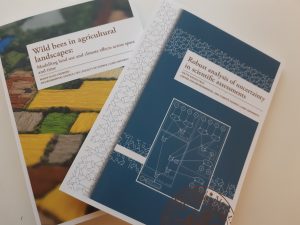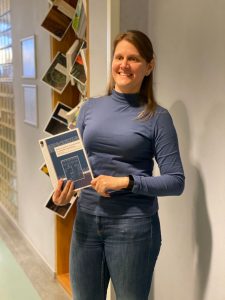This year’s version of Bayes@Lund will be a series of online talks.
Welcome to join
Organisers
Dmytro Perepolkin, Ullrika Sahlin, Rasums Bååth
Matthew Kay, Assistant professor Computer Science and Communication Studies Northwester University- September 15th at 17 CET
Uncertainty visualization with tidybayes and ggdist
When communicating statistical results, we must consider carefully how to communicate uncertainty in ways that people can actually use to make informed decisions. I will describe some useful strategies, tools, and techniques for doing so, based on my (and others’) research and my own practice. I will also showcase recent updates to the tidybayes and ggdist R packages designed to make it easy to quickly create a variety of custom uncertainty visualizations from Bayesian models.
Sign up for the talk on SkåneR meetup page
Thank you, Matt for the awesome presentation! The recording of the talk can be seen here
The slides for today’s talk are available at https://www.mjskay.com/presentations/lund2021-uncertainty.pdf
Will Landau, Statistician and software developer, Eli Lilly and Company – October 20th at 16.00 CET
stantargets and Target Markdown for Bayesian model validation pipelines
The targets R package enhances the reproducibility, scale, and maintainability of data science projects in computationally intense fields such as machine learning, Bayesian Statistics, and statistical genomics. Recent breakthroughs in the targets ecosystem make it easy to create ambitious, domain-specific, reproducible data analysis pipelines. Two highlights include stantargets, a new rOpenSci package that generates specialized workflows for Stan models while reducing the required volume of user-side R code, and Target Markdown, an R Markdown interface to transparently communicate the entire process of pipeline construction and prototyping. The example Target Markdown report at https://wlandau.github.io/rmedicine2021-pipeline (source: https://github.com/wlandau/rmedicine2021-pipeline) demonstrates both capabilities in a simulation-based workflow to validate a Bayesian longitudinal linear model common in clinical trial data analysis.
Will’s talk can be found on our Youtube channel link
Aki Vehtari, Associate professor in computational probabilistic modeling at Aalto University – November 10th
On Bayesian Workflow
Abstract: I discuss some parts of Bayesian workflow with a focus on the need and justification for iterative workflow. The talk is partly based on a review paper (Gelman et al., 2020) with the following abstract: “The Bayesian approach to data analysis provides a powerful way to handle uncertainty in all observations, model parameters, and model structure using probability theory. Probabilistic programming languages make it easier to specify and fit Bayesian models, but this still leaves us with many options regarding constructing, evaluating, and using these models, along with many remaining challenges in computation. Using Bayesian inference to solve real-world problems requires not only statistical skills, subject matter knowledge, and programming, but also awareness of the decisions made in the process of data analysis. All of these aspects can be understood as part of a tangled workflow of applied Bayesian statistics. Beyond inference, the workflow also includes iterative model building, model checking, validation and troubleshooting of computational problems, model understanding, and model comparison. We review all these aspects of workflow in the context of several examples, keeping in mind that applied research can involve fitting many models for any given problem, even if only a subset of them are relevant once the analysis is over.” The pre-print is available at https://arxiv.org/abs/2011.01808.
About the speaker: My research interests are Bayesian probability theory and methodology, especially Bayesian workflow, diagnostics, probabilistic programming, inference methods such as Laplace, EP, VI, MC, model assessment and selection, non-parametric models such as Gaussian processes, dynamic models, and hierarchical models. I’m a member of Stan and ArviZ development teams. I’m the co-author of the textbooks Bayesian Data Analysis, 3rd ed, and Regression and Other Stories.
References:
Gelman A, Vehtari A, Simpson D, Margossian CC, Carpenter B, Yao Y, Kennedy L, Gabry J, Bürkner P-C, Modrák M. 2020. Bayesian workflow [Arxiv]. https://arxiv.org/abs/2011.01808
The Video for Aki’s talk has now been published:
https://www.youtube.com/watch?v=lKRRyrPxxeU
The slides have been uploaded to our drive and shared in the video notes:
https://drive.google.com/file/d/1vb8R3iMmSL1tz61B6T6K7ur9Px972qAu/view



Comments